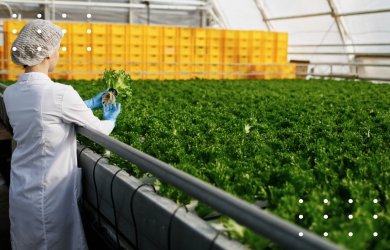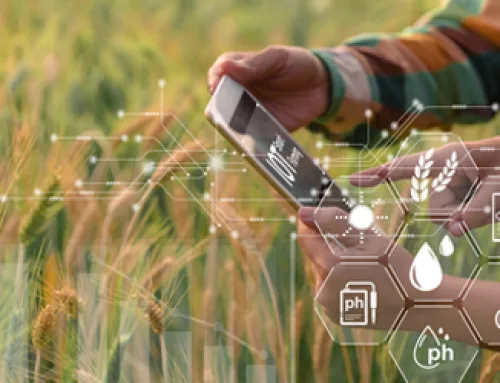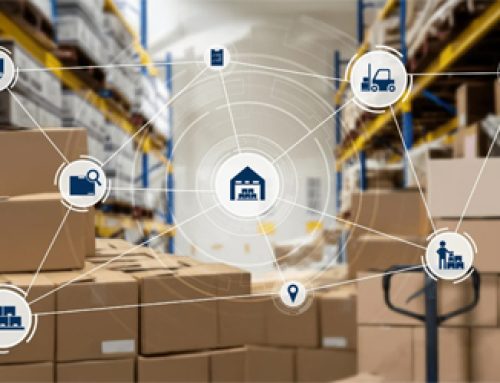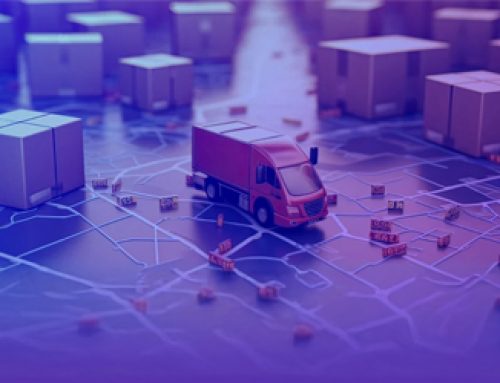Sustainable Agriculture 101: Five Ways to Achieve Sustainable Food Production
According to the United Nations’ World Population Prospects 2022 report, the world’s population has crossed 8 billion. Producing food to nourish this population is a huge undertaking, which depends on billions of labour and enormous environmental and financial resources.
Over the years, various methods and materials of industrialized agriculture and agricultural revolutions in many parts of the world had ensured an abundance of food options, especially in high-income countries. However, this achievement often contradicts the unstainable methods used to bring food and its products from farm to table.
Modern food production methods continue to exploit natural resources and harm environmental health, livestock animals, and rural economies. Moreover, in terms of anthropogenic activities, agriculture is the major cause of global environmental change such as climate change, deforestation, desertification, and damage to marine systems.
Fortunately, sustainable food production offers an alternative to the current form of agriculture. Sustainable, resource-efficient agriculture practices help farmers adapt to change, incorporate traditional farming knowledge, reduce greenhouse gas emissions from farm activities, and focus on long-term environmental health.
Why is Sustainability Important in Food Production?
Today, the importance of sustainable food production is growing, as consumers are now gaining awareness of the sustainability behind the food they buy. Industrialized agriculture is often characterized by reliance on synthetic fertilizers, pesticides, and herbicides that prioritize crop yield over ecosystem or environmental health.
Most multinational agribusiness corporations operate conventional industrial farming that takes short-term approaches to the use of natural resources and contributes to rural poverty. Industrialization of food production also includes farming single crops for a commercial market that leave the soil bare, instead of using cover crops, and creates a huge environmental impact.
Sustainable agriculture, on the other hand, has great potential for benefiting the environment and preserving natural resources. It also helps prevent or reverse environmental degradation that otherwise contributes to food insecurity, hunger, displacement, and conflicts. Unlike intensive agriculture, sustainable farming follows natural cycles and recycles nutrients and water, while omitting excessive use of synthetic agrochemicals. Consequently, it maintains the long-term health and productivity of farmlands and protects natural resources.
Five Effective Ways of Sustainable Food Production
From the rollout of robotic devices and sensors to collect data from different parts of the fields to advanced farm management software to analyze these data and manage farm conditions, sustainable agriculture innovation is becoming diverse.
Climate-smart Practices Through Weather Trends and Harvest Data
As competition and demand for food intensify in the agriculture industry, farm management solutions equipped with a climate-smart agriculture approach are emerging as key to sustainability. Access to harvest data and weather trends through these technologies helps predict and recommend actionable insights for farmers and agrifood companies. The insights are designed and necessary actions are then executed in a way to help farmers minimise profit losses and waste while preserving valuable resources.
Monitoring and Analysis of Farming Practices
Sustainable and climate-smart practices must be followed in every step of farming to achieve the targeted goals. This involves monitoring machinery and fuel usage, the application of natural fertilisers and pesticides at specific points and times, and the use of resources such as water. Farm management software such as FarmERP monitors all sensors and machinery used in farms to gather data on the list of tasks performed on the fields to analyse and ensure that sustainability practices have been followed.
Improving Soil and Water Management
Sustainable food production and its targeted goals emphasize a reduction in the overall usage of pesticides and sustainable irrigation to maintain soil fertility and lessen the threat of water scarcity. FarmERP supports these practices through accurate identification of areas in the fields that have been affected by pests and disease and require water and other resources. This prevents the over spraying of pesticides and the use of water, thus contributing to soil and water management.
Implementation of Regenerative Practices and Nature-based Solutions
Regenerative agriculture integrates all the operations of farms as far as possible and works in harmony with nature to promote practices designed to reverse the negative effects of industrialized agriculture. It primarily minimizes soil disturbance and the use of chemical inputs while maximizing biodiversity. Farm management software integrates farming and food production to better match each other’s needs. The AI systems, smart alarms, and sensors associated with the software can further present real-time data to track the impact of regenerative agriculture practices.
Improving Traceability and Transparency
To ensure a sustainable supply and value chain, farmers and agricultural companies need complete insight into the farming and food production process. A traceability system tracks every step of these processes and provides actionable insights through effective monitoring and analysis of real-time data. These insights help identify which areas need to be improved to achieve sustainable food production.
Potential of Sustainable Food Production
Today, sustainability concerns are increasingly understood and recognized. Consumers are calling out for effective change, while regulators are beginning to shape new requirements on how to create a sustainable food system.
United Nations (UN) engages in various initiatives to promote efficiency and climate-smart best practices on the farms and food production processes. The global transition to sustainable agriculture production is especially critical for achieving the UN’s 2030 Sustainable Development Goals (Target 2.4).
Food Security: Sustainable agricultural approaches such as agroecology help preserve the quality and productivity of agricultural lands which is imperative for improving global food security. Wise use of natural resources can also result in plentiful yields, increased farmer incomes, and improvements to local farms and environments.
Water Security: Agriculture is the largest consumer of global water resources; however, its uses in unsustainable ways may lead to environmental collapse and an imbalance in water availability. A study report estimated that sustainable irrigation could feed an additional 840 million people while preventing freshwater scarcity.
Climate Resilience: Climate change increasingly threatens the future of food production, demanding sustainable solutions. These solutions along with a shift to plant-based food systems provide significant advantages for managing climate threats.
Environmental Protection: Sustainable food production practices, involving the elimination of using synthetic pesticides and fertilizers, can lessen soil erosion and improve fertility. It can also prevent the pollution of air, water, and land and support biodiversity.
Economic Opportunity: Sustainable food production practices also involve the protection of the intact forest, reformation of government agricultural subsidies, and reduction of food waste. These practices help improve farmers’ economic outlook throughout the global supply chain.
FarmERP strives to contribute to sustainable food production through efficient farm and food value chain management. Contact us to know more about our offerings.



